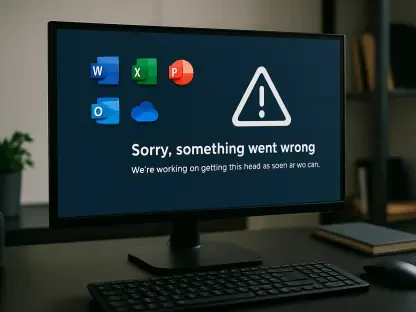Recent reports have unveiled a significant security concern for WhatsApp users, stemming from the emergence of Israeli spyware named Graphite, developed by Paragon Solutions. This spyware has been used to hack into the accounts of journalists and individuals, raising alarms about privacy and data security on the messaging platform. The magnitude of this threat underscores the necessity for users to comprehend how Graphite operates, its implications, and the protective measures they can adopt.
Understanding Graphite Spyware
The Mechanics of Zero-Click Attacks
Graphite spyware introduces a formidable risk in today’s digital arena. Unlike traditional spyware that necessitates a user’s interaction—such as clicking a link or downloading a file—Graphite leverages a “zero-click attack.” This advanced technique allows the spyware to infiltrate a device with no awareness or consent from the user, thereby providing hackers unauthorized access to a plethora of sensitive information. This can include personal messages, contact lists, photos, videos, location data, and microphone and camera functionality, resulting in a considerable breach of user privacy.
A particularly alarming aspect of zero-click attacks is their efficiency and stealth. They exploit vulnerabilities in software applications to gain control over the device without any direct interaction with the users. Once the spyware is installed, the scope of compromised information is extensive, posing serious concerns about privacy breaches. This is especially critical, as these attacks can be executed without the users’ slightest clue, thereby making detection and mitigation difficult. As a result, users might unknowingly expose themselves to risks, with hackers monitoring their activities in real time, capturing private communications, and even activating the device’s microphone and camera for surveillance purposes.
Targeted Individuals and Impact
According to recent findings, the primary targets of Graphite spyware have been identified as journalists and members of civil society. The stealth operation of this spyware means that many affected users might remain oblivious to the intrusion. Reports have indicated that while WhatsApp has not precisely determined the locations of these affected individuals, they are actively engaged in alerting users who may be at risk. This proactive approach is essential to protect vulnerable individuals from potential harm and to safeguard the integrity of confidential communications.
The consequences of Graphite’s infiltration can be severe, especially for individuals working in sensitive roles where privacy is paramount. Journalists, for instance, may face threats to their sources’ confidentiality, thereby endangering their lives and the credibility of their work. Similarly, activists and members of civil society risk exposure to oppressive regimes, compromising their safety and the efficacy of their movements. This pervasive sense of vulnerability emphasizes the need for increased vigilance and robust security measures to counteract such sophisticated surveillance threats.
WhatsApp’s Response and Protective Measures
Legal Actions and Security Enhancements
In response to the threats posed by Graphite’s spyware, WhatsApp has taken a stern stance against Paragon Solutions. The company has issued a cease-and-desist notice to Paragon and is exploring potential legal actions against the firm. Moreover, WhatsApp is enhancing its security protocols to bolster defenses against such intrusive spyware. Cybersecurity experts emphasize the importance of keeping software updated and employing multi-factor authentication to mitigate potential security breaches. These steps are crucial in maintaining a secure communication environment for the platform’s global user base.
WhatsApp’s commitment to security extends beyond immediate legal actions, as they continually invest in advanced technologies to detect and mitigate threats. By deploying sophisticated monitoring tools, WhatsApp aims to identify suspicious activities early and prevent potential breaches before they inflict substantial damage. Collaborating with cybersecurity experts and ethical hackers, WhatsApp works diligently to address software vulnerabilities and enhance user protection against emerging threats like Graphite. These concerted efforts serve as a testament to WhatsApp’s dedication to user privacy and security.
Recommendations for Users
To counter the threat of advanced spyware like Graphite, WhatsApp users need to adopt robust security measures. Several recommendations include enabling two-step verification, keeping the app updated, avoiding suspicious links, adjusting privacy settings, and staying informed about the latest cybersecurity threats. Enabling two-step verification provides an extra security layer, requiring a PIN code when registering a phone number on WhatsApp. Regular updates ensure the app incorporates the latest security patches and features, while caution against suspicious links can prevent malware installation. Adjusting privacy settings helps restrict who can see profile details, thus limiting potential exposure. Lastly, educating oneself about evolving cybersecurity threats is vital for sustained online safety.
Adhering to these recommendations can significantly enhance a user’s defense against unauthorized access and data breaches. For instance, enabling two-step verification will require an additional layer of authentication, making it harder for hackers to compromise accounts even if they somehow obtain the login credentials. Staying vigilant about app updates can also fortify defenses by ensuring that any vulnerabilities identified by developers are promptly patched. By adopting good security hygiene practices, users can create a more secure digital environment that complicates efforts by malicious actors aiming to exploit personal information.
The Role of Paragon Solutions
Government Surveillance and Ethical Implications
Paragon Solutions, the company at the center of this controversy, is noted for providing its services to government clients, including around 35 democratic governments. Specializing in developing surveillance tools, Paragon is now under scrutiny for its role in enabling unauthorized access to communications. Despite the gravity of the allegations, Paragon’s lack of response adds to the unease about accountability and transparency in the cybersecurity landscape.
The issue of government surveillance and privacy sits at a complex crossroad. While security agencies advocate the necessity of such tools for national security, the ethical implications of spying on civilians, particularly vulnerable communities, journalists, and activists, are profound. The misuse of these spyware tools can significantly undermine privacy and trust, posing substantial risks to civil liberties. As government entities rely on such surveillance technologies for legitimate purposes, it is essential to establish stringent oversight and accountability mechanisms to prevent abuse and ensure that civil rights are respected.
The ongoing scrutiny of Paragon Solutions reflects broader concerns about the accountability of tech companies that develop and distribute surveillance tools. Transparency in operations and adherence to ethical guidelines are paramount to maintaining public trust and ensuring that these technologies are used responsibly. Governments and organizations must balance their security needs with individuals’ rights to privacy, creating policies that safeguard against the misuse of powerful surveillance instruments.
Enhancing Personal Security
Detecting Potential Infections
The article also addresses common queries about the potential for Graphite spyware detection, WhatsApp’s notification mechanism for potential risks, legal implications for companies using spyware, and alternative messaging apps prioritizing security. For instance, despite Graphite’s stealth design, users may detect potential infections through signs such as unexpected crashes or rapid battery drain. WhatsApp employs monitoring tools and user feedback to identify suspicious activity, notifying affected users promptly. These notifications guide users on steps they can take to secure their accounts and mitigate potential risks associated with spyware infections.
Vigilant monitoring of device performance and recognizing abnormal behavior are crucial in detecting spyware presence. Users should pay attention to anomalies such as unexplained slowdowns, unexpected data usage spikes, and unusual pop-ups or notifications. Additionally, regularly checking app permissions and removing unnecessary access can help in managing potential vulnerabilities. By being proactive and attentive to their device’s health, users can better protect themselves from the covert operations of spyware like Graphite and maintain their digital privacy.
Exploring Secure Communication Alternatives
Recent reports have disclosed a significant security issue for WhatsApp users due to the Israeli spyware named Graphite, developed by Paragon Solutions. This spyware has been discovered to infiltrate the accounts of journalists and other individuals, sparking serious concerns over privacy and data security on the popular messaging platform. The severity of this threat highlights the urgent need for users to understand how Graphite functions, the consequences of its use, and the steps they can take to protect themselves.
Graphite is a sophisticated piece of software designed to bypass security measures, giving attackers access to personal communications and sensitive information. This not only invades privacy but also poses a risk of misuse of the stolen data. Users must remain vigilant and informed about such dangers by keeping their apps updated, employing strong passwords, and being cautious about suspicious messages and links. Additionally, utilizing encryption and two-factor authentication can provide an extra layer of security. It is crucial for users to stay informed and proactive in safeguarding their personal information against emerging threats like Graphite.









